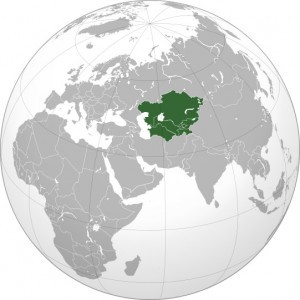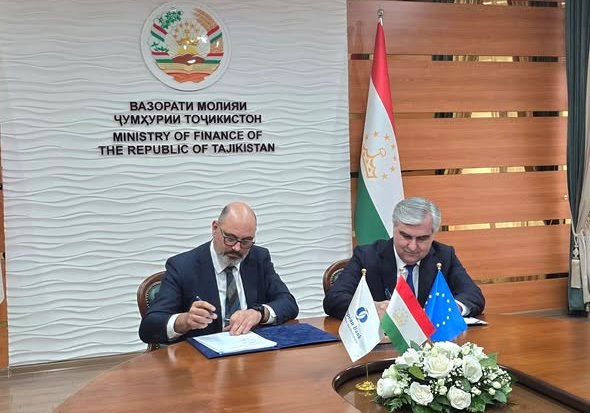BISHKEK (TCA) — The Times of Central Asia presents to its readers Stratfor’s Global Intelligence, a weekly review of the most important events that happened in the world — from Europe to Middle East to Russia to Central Asia to Afghanistan to China and the Americas.
The Week That Was
More Dirt in Brazil
Brazil is having an exceptionally difficult time finding candidates without dirt on their hands. A plea bargain testimony by Sergio Machado, the former head of Transpetro, revealed this week that interim President Michel Temer negotiated illicit funds for a mayor’s campaign in 2012. Even former senator Marina Silva, who is positioning herself for the 2018 presidential elections as the clean and green outsider candidate, was accused of illegal campaign funding this week. The perseverance of Operation Car Wash and a number of leaks have put into question Temer’s pledge to put the corruption probe behind Brazil and pull the country out of a deeply destabilizing period.
Lucky for Temer, the Brazilian constitution says a president cannot be investigated for things that happened before their presidential term. Only once they leave office can those charges be filed. That means Temer has a pretty decent chance of escaping the noose for now and serving out his term. Brazil’s Federal Prosecutor Rodrigo Janot has indicated that he will not open an investigation against Temer based on the plea bargain deal. More dirt could come up on Temer that could make him a liability, but given that Temer is unlikely to have enough support to run in 2018, his short-term presidency could help Brazil make difficult decisions on spending cuts this year.
Russian Economic Forum
We saw much more European love for Russia this week at the St. Petersburg International Economic Forum. European sanctions are still going to remain in place through this year, but European attendants like Italy and France did not hide their sanctions fatigue. Italy even co-hosted the entire event. Some of the more notable highlights of the forum included a Gazprom-Royal Dutch Shell deal for a $10 billion liquefied natural gas facility on the Black Sea, a Rosneft-BP joint venture for West and East Siberia exploration and interest shown by Italy, China and India in a stake in Rosneft, which will be privatized by the end of the year.
Russia is also apparently in talks with investment funds from the Middle East for a stake in Russian Helicopters, with Saudi Arabia, the United Arab Emirates, Qatar and Kuwait possibly involved. This is a big shift for Moscow when it comes to allowing outside players into its military industrial complex, but it also needs to make some bolder moves if it wants to cut state costs and expand markets. Saudi Arabia and the United Arab Emirates, in particular, are keen on such acquisitions as part of their broader defense industrialization plans.
China Snubbed
China’s hopes were dashed again when global stock benchmark provider MSCI Inc. held off on including Chinese mainland-traded and yuan-denominated A-shares to its emerging markets index, saying China needed to make its markets more accessible and more transparent first. China wants to bring large institutional investors with longer investment horizons to bring more stability to its local exchanges. Getting its A-shares listed on the MSCI index would not only bring billions of dollars in capital inflows to China, but also go a long way in boosting global yuan usage. But with a host of socioeconomic tremors to balance, China is understandably going at its own, slower pace when it comes to liberalizing its capital account. The next review for China’s MSCI consideration comes up in June 2017.
New Venezuela Talks
The United States has initiated a new phase of negotiations with Venezuela to try and prod along a political transition away from Venezuelan President Nicolas Maduro. Armed with a number of pending indictments against Venezuelan officials involved in drug-trafficking, Washington is hoping to apply enough pressure on Caracas to proceed with a referendum this year to install a new government, release political prisoners and effectively break the country out if its current limbo. The Maduro government is happy to entertain the talks and selectively engage the opposition, but from what we can discern from our sources so far, it seems that Maduro is more intent on using the dialogue to buy more time than it is prepared to make any substantive discussions.
The Venezuelan rumor mill has been on fire, with some leaks potentially linked to probes by intelligence authorities searching for dissent. One rumor in particular we are keeping an eye on is the resurfacing claim that Venezuelan Defense Minister Padrino Lopez could be replaced with Venezuelan National Guard chief Gen. Nestor Reverol. Maduro may be having doubts that Lopez can be trusted to apply force in putting down a growing number of riots as food shortages in the country worsen. Reverol, on the other hand, is one of the key figures ensnared in drug-trafficking and has good reason to fear extradition to the United States should a more moderate Chavista government emerge. We will be keeping an eye on Lopez and Reverol in the coming days to see if there is any substance behind the rumors this time around.
Full Articles
Why the Islamic State Is Weaker Than It Seems
In Syria, the Islamic State is in crisis. Over the past three years, the group has managed to expand from a regional nuisance to a force with global relevance, declaring a caliphate in June 2014 that stretched from Iraq’s Diyala province to Syria’s Aleppo province. By doing so, it linked the two nations into a single zone of conflict and drew the attention of numerous powers, including the United States, Turkey and Russia. Today, the group maintains a presence from western Iraq to the Syria-Lebanon border — an impressive territorial spread.
Russia Is Saving Jobs, but Not the Economy
Russia’s economic downturn has left many of the country’s biggest companies struggling to make ends meet. Now, AvtoVAZ — Russia’s largest automobile manufacturer and the recession’s latest victim — is on the verge of laying off thousands of workers unless the Kremlin can find a way to prevent it. The company, which employs some 2 million Russians, intends to let some of its people go through a “voluntary” dismissal over the next two weeks, offering hefty compensation packages to those who leave. The announcement prompted the governor of the region housing AvtoVAZ’s biggest plant to meet with Russian President Vladimir Putin on June 6 to ask for the government’s help. But whether the Kremlin props up Samara province’s unemployed automotive workers or pressures AvtoVAZ into keeping them, it will not be able to fix the worsening economic conditions that threaten citizens’ livelihoods and, by extension, the legitimacy of its rule.
Why China Is Arming Its Fishing Fleet
Safeguarding the South China Sea, the most valuable of China’s waterways, is no easy task, and Beijing has had to employ a variety of creative tactics to do it. In addition to building up islands and troops alike, China has encouraged its fishermen to venture out into disputed waters. Using this maritime militia to carry out foreign policy has its drawbacks, though, and as the contested sea becomes more crowded with actors that are loosely controlled at best, the chances of unexpected conflict will rise.
Growing Concern on the Northern Afghan Border
Security along the border between Afghanistan and its Central Asian neighbors appears to be a source of growing concern both for those countries — Tajikistan, Uzbekistan and Turkmenistan — and for outside powers such as the United States, Russia and China. Head of U.S. Central Command Gen. Joseph L. Votel’s June 14-15 visit to Tajikistan, which comes on the heels of Russian Defense Minister Sergei Shoigu’s June 9 meeting with security officials in Turkmenistan, reflects the focus on Central Asia. Although the extent of the threat of militant spillover from Afghanistan into Central Asia is unclear, security risks in the border area are likely to prompt a military buildup and lead foreign powers to increase their involvement — and competition — in the region.
The Gulf Will Always Need Migrants
Historically, Gulf state residents have been fairly uninterested in working in the private sector; instead, they prefer the more lucrative public sector jobs. And so, for decades Gulf states have turned to migrants from South and Southeast Asia to supplement their workforces in virtually every sector. Now there are nearly 25 million non-national migrant workers in the Gulf, primarily from India, Bangladesh, Pakistan and the Philippines. The high proportion of expatriate workers in the Gulf has created friction with locals, who resent the erosion and migrants’ perceived ignorance of local culture. Even so, migrant workers are going to remain a fixture in the Gulf for some time, and in fact, their numbers will likely rise. Host governments will have to find a way to tax the migrants and secure enough jobs for their restive local populations without discouraging the much-needed migration to their countries.
The Week Ahead
Brexit Vote
All eyes will be on the United Kingdom next week with the referendum on EU membership upcoming on June 23. The week began with drops in the sterling pound and stock markets in Europe and increases in bond yields in the eurozone periphery, as polls started to show that the “leave” camp was ahead. The week ended in tragedy when a Labour Party lawmaker who supported the “remain” side was killed on Thursday afternoon.
Against this complex backdrop, the British public will have to vote whether they want to disconnect their country from the European Union. This process could take between two years and a decade. While a vote to remain in the European Union would bring temporary relief to financial markets and politicians in the Continent, the damage is already done. With his referendum, British Prime Minister David Cameron has set an example that other countries in Europe are likely to follow on the path toward further fragmentation.
In anticipation of the volatility to come, the European Central Bank has been sending signals to markets about its intention to protect EU financial markets in the event of a Brexit. European Central Bank officials said the Frankfurt-based organization has taken the necessary precautionary measures to meet liquidity needs after June 23. This includes an agreement with the Bank of England on a currency swap between the two banks. Should a Brexit lead to higher borrowing costs for countries in the eurozone periphery, the promise by the European Central Bank to do “whatever it takes” to protect the currency union could finally be tested.
Nigeria Floats its Currency
The Nigerian central bank announced this week that it is abandoning its foreign exchange peg to the dollar and will begin floating the the country’s currency, the naira, on June 20. In light of this, we expect a sharp devaluation of the naira to begin on June 20, likely falling substantially. The central bank has been preparing for the coming devaluation, selling long-dated treasury bills at higher yields to decrease naira liquidity. Moreover, civil society groups have spoken out against the possibility of devaluations in the past and therefore the potential for organized protests to occur in the wake of serious devaluations may increase. At this point, however, we have not seen any calls for protest by any of Nigeria’s main unions, which means that the immediate backlash early next week may be delayed.
Nagorno-Karabakh Talks
Putin will host a meeting between the Armenian and Azerbaijani presidents in St. Petersburg on June 20. The co-chairs of the Organization for Security and Co-operation in Europe (OSCE) Minsk Group from the United States and France are also expected to take part. The meeting is supposed to cover the implementation of an OSCE investigative mechanism to independently report cease-fire violations and advance negotiations on a comprehensive settlement for Nagorno-Karabakh. We are not expecting any breakthroughs in this meeting, but this will be a good point to gauge how much progress Moscow is making in these talks as it works to deepen its involvement in the dispute and draw Azerbaijan closer. Throughout the week, Azerbaijan will be showcasing its military capabilities in large-scale military exercises.
Red Sea Islands
Egypt’s State Council Administrative Court will give its final verdict June 21 on a case that challenges the demarcation agreement signed in April to transfer the Red Sea islands of Tiran and Sanafir to Saudi ownership. That will not be the end of this dispute, however. A number of lawmakers have been arguing that the government is constitutionally obliged to have the parliament review the agreement and put it up for a referendum since this is a matter of national sovereignty.
Egyptian President Abdel Fattah al-Sisi has been receiving a lot of heat over that decision and even Egyptian Foreign Minister Sameh Shukri told youth ministry members this week that parliament could still kill the deal altogether. Notably, an Egyptian court acquitted early this week 51 protesters who were detained in April when they demonstrated against the president’s island decision. Al-Sisi may end up having to backtrack on this issue, which will complicate his relationship with Riyadh, but most importantly expose a deeper weakness in his regime.









